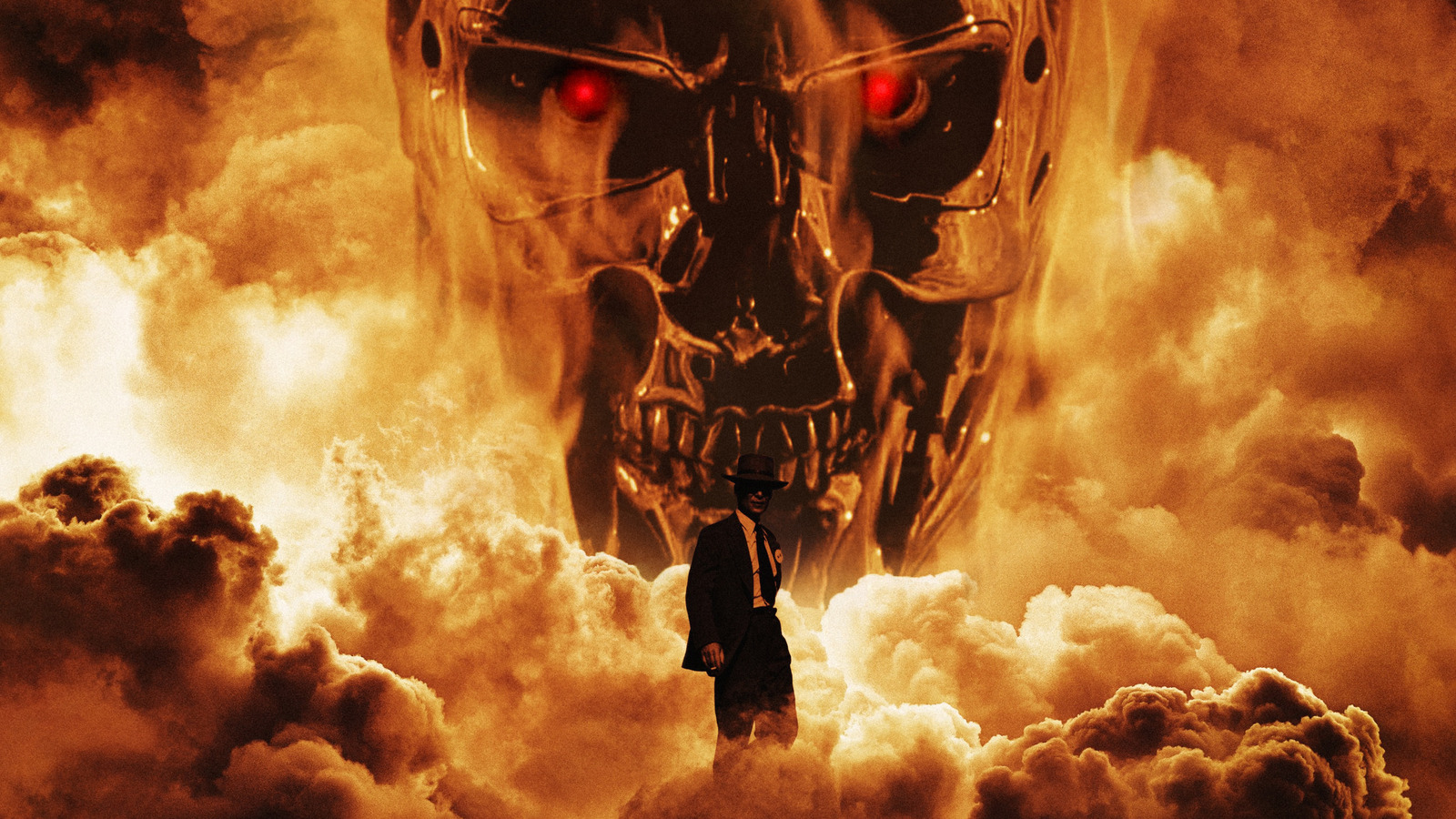
Christopher Nolan Says Oppenheimer Is A ‘Cautionary Tale’ For AI Researchers – /Film
Though the Directors Guild of America (DGA) declined to join the Writers Guild (WGA) on strike, director Christopher Nolan has been fully supportive of Hollywood’s ongoing industrial action. He walked a picket line with his brother Jonathan and told the BBC that he won’t start working on a new film until the strike is resolved. He’s even found a link between the strikers’ concerns about AI technology and his upcoming film, “Oppenheimer.”
Deadline reports that at a New York “Oppenheimer” screening, Nolan argued that the entertainment industry’s experiments with artificial intelligence are like playing with fire:
“When you innovate through technology, you have to make sure there is accountability. A lot of companies for 15 years have bandied about terms like ‘algorithm,’ not knowing what they really mean in any meaningful, technical sense. These guys don’t really know what an algorithm is or what it does. People in my business talking about it, they just don’t want to take responsibility for whatever that algorithm does. Applied to AI, it has terrifying possibilities.”
“Oppenheimer” is, of course, about J. Robert Oppenheimer, the physicist who led the Manhattan Project in creating the atomic bomb. Oppenheimer and his contemporaries played with primal power in the name of progress, but only unleashed devastation and a world worse off than before. See the parallels?
The experts developing AI tech certainly do. “When I talk to the leading researchers into AI, they literally refer to this as their ‘Oppenheimer moment,'” Nolan shared. “Oppenheimer’s story can at least serve as a cautionary tale. It at least can show where some of those responsibilities lie.”
A Promethean fable
 Metro-Goldwyn-Mayer
Metro-Goldwyn-Mayer
“Oppenheimer” tracks the development of the atomic bomb, drawing on the biography “American Prometheus” by Kai Bird and Martin J. Sherwin. As the film’s trailer outlines, the Manhattan Project was kicked into overdrive by fears that Nazi Germany was developing its own nuclear weapons. At the same time, the Americans meddled with power they couldn’t comprehend or control. The trailer shows Oppenheimer (Cillian Murphy) warning Brigadier General Leslie Groves (Matt Damon) that there’s a “near-zero” chance that activating the bomb will ignite the atmosphere and destroy the world — this was a genuine fear at the time.
The history surrounding “Oppenheimer” shows the dark side of human innovation. In war, science is used only to develop new ways to destroy other people — and potentially ourselves. Oppenheimer’s most famous quote (itself a quote from the sacred Hindu text “Bhagavad-Gita”) is “Now I am become death, the destroyer of worlds.” Those aren’t the words of a man proud of his legacy. And the consequences of innovation aren’t restricted to violent conflicts. In a capitalist economy, innovation is all about how to siphon off more wealth to the few at the top.
During the 21st century, Hollywood has been invaded by the technology industry. The burgeoning attempts to replace writers and actors with AI simulacra is the latest result. After all, labor without wages is a capitalist’s dream.
The responsibility of science
 HBO
HBO
AI technology is new and largely untested. If adopted widely and quickly, it holds the potential to irrevocably damage the entertainment industry by uprooting modes of production and displacing too many essential workers. Just look at online media’s foolhardy “pivot to video” based on falsified Facebook metrics, or how studios’ embrace of the streaming model has destroyed the livelihoods of TV workers dependent upon residual payments.
Now, to be fair, Nolan isn’t totally on the “AI is the new nuke” train. In an interview with WIRED, he went further on his thoughts about this issue.
“I do believe the atomic bomb is in a class of its own as far as technologies that have changed and endangered the world […] The issue with AI, to me, is a very simple one. It’s like the term algorithm. We watch companies use algorithms, and now AI, as a means of evading responsibility for their actions.”
Nolan cites Oppenheimer’s own belief that postwar scientists were, “the experts who had to figure out how to regulate this power in the world.” He, in turn, argues that one reason the modern tech industry is underregulated is that legislators don’t understand its products.
So while Nolan isn’t against technological innovation, he thinks it must be applied carefully. Going on his aforementioned quote from Deadline, he thinks that people with power over new technology have a responsibility to understand it, both how it works and the consequences of its usage. He said that should any tech industry leaders watch “Oppenheimer,” “[he wants] them to take away the notion of accountability.”
History shows that greed often wins out against common sense, but if any movie can be a wake-up call, it’s a movie like “Oppenheimer.”
“Oppenheimer” premieres in theaters on July 21st.































![iFi's GO Bar Kensei Dongle DAC Supports K2HD Technology With Some Samurai Swagger [Updated] iFi's GO Bar Kensei Dongle DAC Supports K2HD Technology With Some Samurai Swagger [Updated]](https://i0.wp.com/cdn.ecoustics.com/db0/wblob/17BA35E873D594/33FF/45A11/QTXOLJR4xDKSNMMk2WlTgjaIlvSgcYpeU1xJzUwIoYs/ifi-go-bar-kensei.jpg?w=768&ssl=1)

























